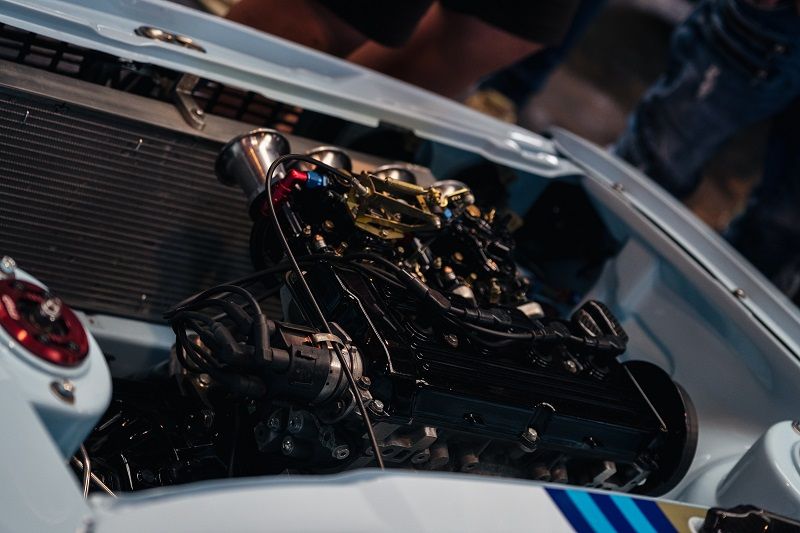
One of the primary developments taking place within the automotive industry in the last few years has been about investing in autonomous vehicles. Some automotive enterprises have even begun to move out of the research and development phase and onto the road. Here’s what’s currently taking place across the industry:
Ride-hailing services
The Alphabet’s (Google’s holding company) autonomous vehicle arm, Waymo, announced earlier in July 2019 that they were going to take part in the California Public Utilities Commission’s pilot programme for autonomous vehicle passenger services.
The announcement takes the number of companies involved in the trial up to four following Zoox, Autox Technologies and Pony.ai's participation.According to the California Public Utilities Commission, this trial will not permit the companies to charge passengers and all vehicles must still have a human safety driver as an onboard element. This follows after Waymo became the first to be granted operating permits for fully driverless cars without human drivers on public roads in California.
Automation in other service sectors
Elsewhere after personal transportation, the development of autonomous vehicles has significantly impacted the working practices of the delivery industry. As it stands currently, the shipment of products and services to customers take place through logistics and transportation from warehouse to intended destinations.
This, however, is all going to change thanks to the advancement of automation technologies. In some respects, automation and autonomous systems have already reshaped the status quo. In a few major retailers and delivery companies, enterprises are trialling different forms of automated options in getting their products and services to the end consumer.
Amazon, for instance, has made great strides with the development of their Prime Air service that features the use of drones to take small parcels and packages from their warehouse to the end delivery point. While Prime Air is still in its infancy, this service shows the potential for the use of drones as a comprehensive logistic solution.
In the food and drinks industry, particularly in the United States, automation has allowed several grocery retailers to run trials that delivery food and goods using autonomous systems. These tests show signs of improved efficiency and prove that is only a matter of time before it's used on a broader commercial scale.
Noro has been developing specific vehicles designed solely for automated commercial deliveries. Their R1 robots are currently in the testing phase delivering groceries on behalf of the retail giant, Kroger, to customers in Scottdale, Arizona and Houston. And more recently, Nuro has partnered with Domino's to provide automated deliveries of their products to Houstonians.
Fun fact: besides utilising Nuro's services, Domino's has also successfully trialled the delivery of pizza using drones!
Impact on the job market
While the full rollout of completely unmanned vehicles are still years away and will be executed through a gradual phase-in of the technology, there is little doubt that these types of services will be eventually delivered via robotics – transforming the state of jobs in various affected industry sectors.
The typical human element in the actual physical transportation and delivery of goods and services will ultimately be null in the future, but that's not to say that humans will no longer be needed. As a matter of fact, experts state that the adoption of automated technologies and vehicles will create new roles that require humans in aspects of control, monitor and management.
Plus, there's also the essential aspects of maintenance that will be required for all automated and autonomous systems in cars. Given the complexity of technology and irregularity of issues, it's unlikely that robots will be made available to fix or maintain autonomous vehicles or systems.
On the flip side, the most prominent growth area for jobs relating to autonomous systems and cars will likely be in the field of coding and programming. According to the Guardian, coding and programming as a skill are modern-day languages of the world.
So does this mean that we’ll be swapping low-skilled jobs like delivery drivers for higher-skilled ones like programmers and coders? The answer is a very probable yes. The challenge for the current generation and future generations will be to ensure that they have the necessary skills to meet the requirements for the coding and programming skills to maintain and develop these robotic helpers.
The future of automation
Though it's currently impractical and uneconomical to do so, it's conceivable that in the future, services and products will be available immediately on the doorstep of your home from the point of purchase. The removal of the human element from the equation will enable a faster and more efficient service in delivery services but may also ignite a shift in migration to areas that are 'autonomous-friendly'.
The availability of these 'anything as a service' providers could transform the way we live. Image this for instance: if the need to drive yourself from one place to another is eliminated, then the daily commute becomes a different prospect as you can use the time for other pursuits. This would mean that the distance between home and the workplace could be further away, which would then decrease the pressure on housing in metropolitan and urban areas.
The bottom line is: the advancement of autonomous vehicles will reconstruct the world of today to change retail models, how we commute and even where we live. The rollout of autonomous vehicles will have far-reaching impacts than first thought and, its influences will only be clear many years in the future.
Read Autonomous Vehicles: How Will Ownership Change?





